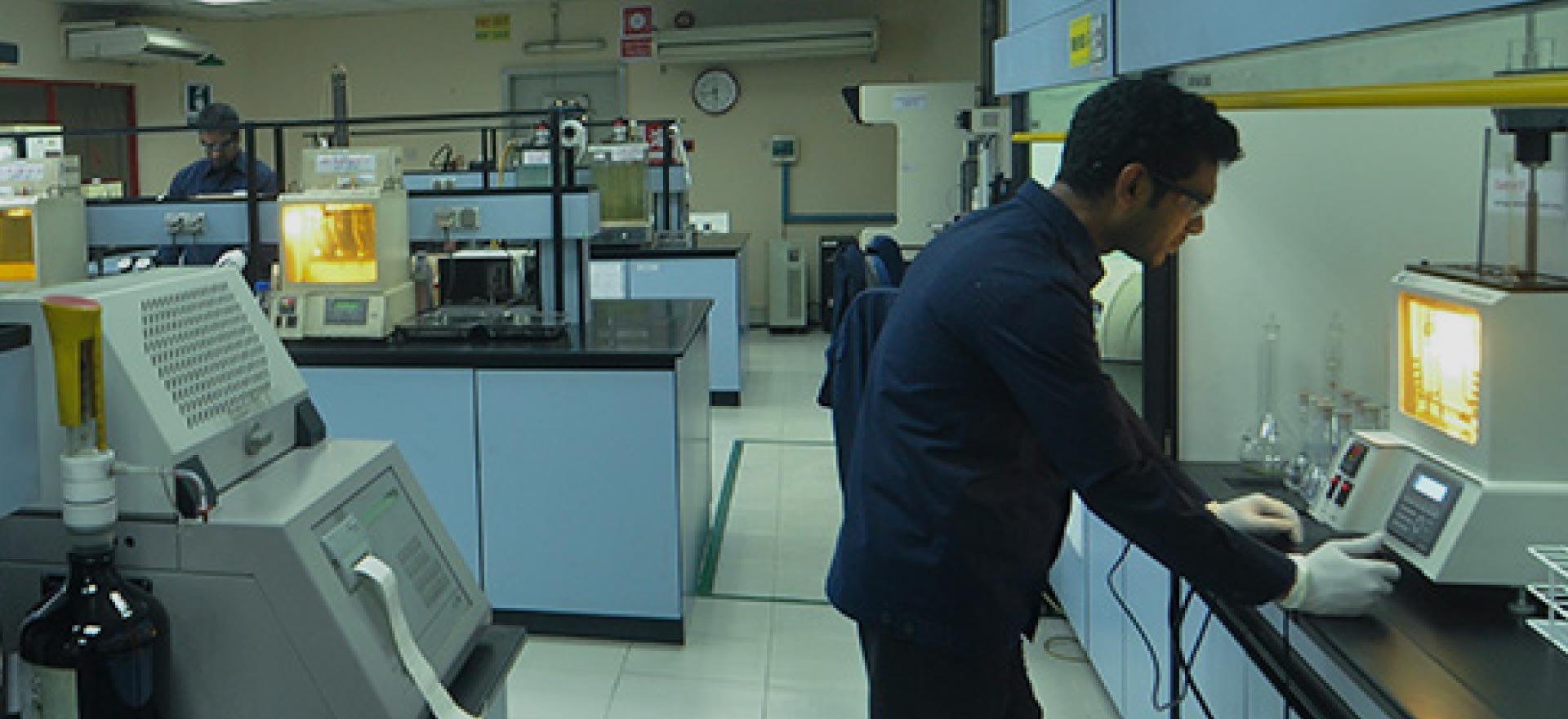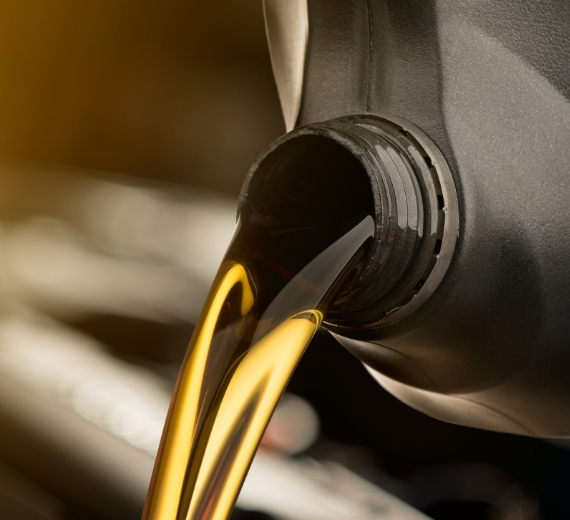
Lube oil testing lab
Catering excellence with
innovative precision

The Plant
MJL Bangladesh PLC has curated the notion of excellence with their Lube Oil Testing Lab. The brilliance of processing the testing of lube oil in the testing facility has enthralled precision and quality on a global scale, meeting the standards and beyond.
MJL Bangladesh PLC has been serving the nation with excellent quality lube oils that meet global standards. The services of lubricants, grease, transformer oil, fuel, LPG, and coolant analysis for the nation’s automotive, marine, and industrial sectors are nothing but magnificently processed and focused from the beginning in their lab facility. The highly automated and facilitated lab consists of sophisticated analysis instruments, which ensure the products are made with precision following ExxonMobil’s Guidelines.
The testing facility is facilitated with world-class and latest lab equipment to meet the latest world-class standards for producing the top-notch quality lube oils. The facility consists of ICP, AAS & FTIR Spectrophotometer, Automatic Viscometer, CCS Viscometer, CMRV, HTHS viscometer, Noack Volatility Test Equipment, Pour Point Determiner, Density Meter, TAN & TBN Analyzer, Karl Fischer Coulometer, Water Separability Test Equipment, Air Release Test Equipment, Foam Test Equipment, Copper Corrosion Test Equipment, Nitrogen Analyzer, , Particle Counter, Oxidation Stability Test Equipment, Sulfur Analyzer, Bomb Calorimeter, Hydrogen Analyzer, Carbon Residue Analyzer, Total Sediment Tester, Asphaltenes Tester, Dielectric Breakdown Voltage Tester, Baur Power Factor Tester, Transformer Oil Gas Analyzer (TOGA), Force Tensiometer, Reid Vapor Pressure Analyzer, Hydrogen Sulfide Analyzer, Methyl Mercaptan Tester and many more, which enables them to a thorough process of testing. The equipment, that facilitates the testing lab, is supplied by the world’s leading companies that specialize in producing the best testing and measuring equipment such as Koehler, Perkin-Elmer, Cannon, Agilent Technologies, PAC, Metrohm, Anton Paar, TANAKA, Kruss, Tannas, Spectro Scientific, Stanhope Seta, Parr Instrument, Trace Element Analysis Jenway, Horiba, Megger, Baur and many more. Besides, the equipment is designed and articulated in such a manner that defines carrying out QA/QC tests for the releasing batch of products at every specific stage of production.
Fully Automated and Sophisticated Instruments
For precision and to negate the possibility of human error.
Recognized Technical Expertise
Our staff are highly qualified, experienced, trained and reputed. Their knowledge and understanding are our foundations.
Preventive Maintenance Program
Authorized OEM engineers do the preventive maintenance to minimize the breakdown time.
Fully Automated and Sophisticated Instruments
For precision and to negate the possibility of human error.
Recognized Technical Expertise
Our staff are highly qualified, experienced, trained and reputed. Their knowledge and understanding are our foundations.
Preventive Maintenance Program
Authorized OEM engineers do the preventive maintenance to minimize the breakdown time.
Used Oil Analysis
Used oil analysis is the key element of understanding the machine’s condition as well as the lubricant contamination and its condition. Oil analysis results enable the maintenance engineers to detect the internal health of the engine and allow them to make decisions based on its diagnosis.
Machine wear analysis is the elemental curation of analyzing the particles in the oil. Furthermore, the analysis suggests whether it is adhesive wear, abrasive wear, fatigue wear, or corrosive wear. The full suite of particle analyses details an elaborated result that includes a measure of particle count and distribution, particle shape and morphology, wear metal and alloy elements, and the presence of large ferrous particles. In addition, elemental analysis is an analysis that is processed primarily to assess the engine’s wear condition in a commercial oil lab.
Contaminations in oil can be observed in a solidified form or a liquid form. Particle counting and sizing techniques are implemented to detect any sort of solid contaminations, such as sand and dirt. On the other hand, liquid contaminants are most water when it comes to industrial rotation machines. And for diesel and gas-operated engines, it can be water, coolant, or fuel distribution. Contamination reduces the health of the engine significantly and increases machine wear.

